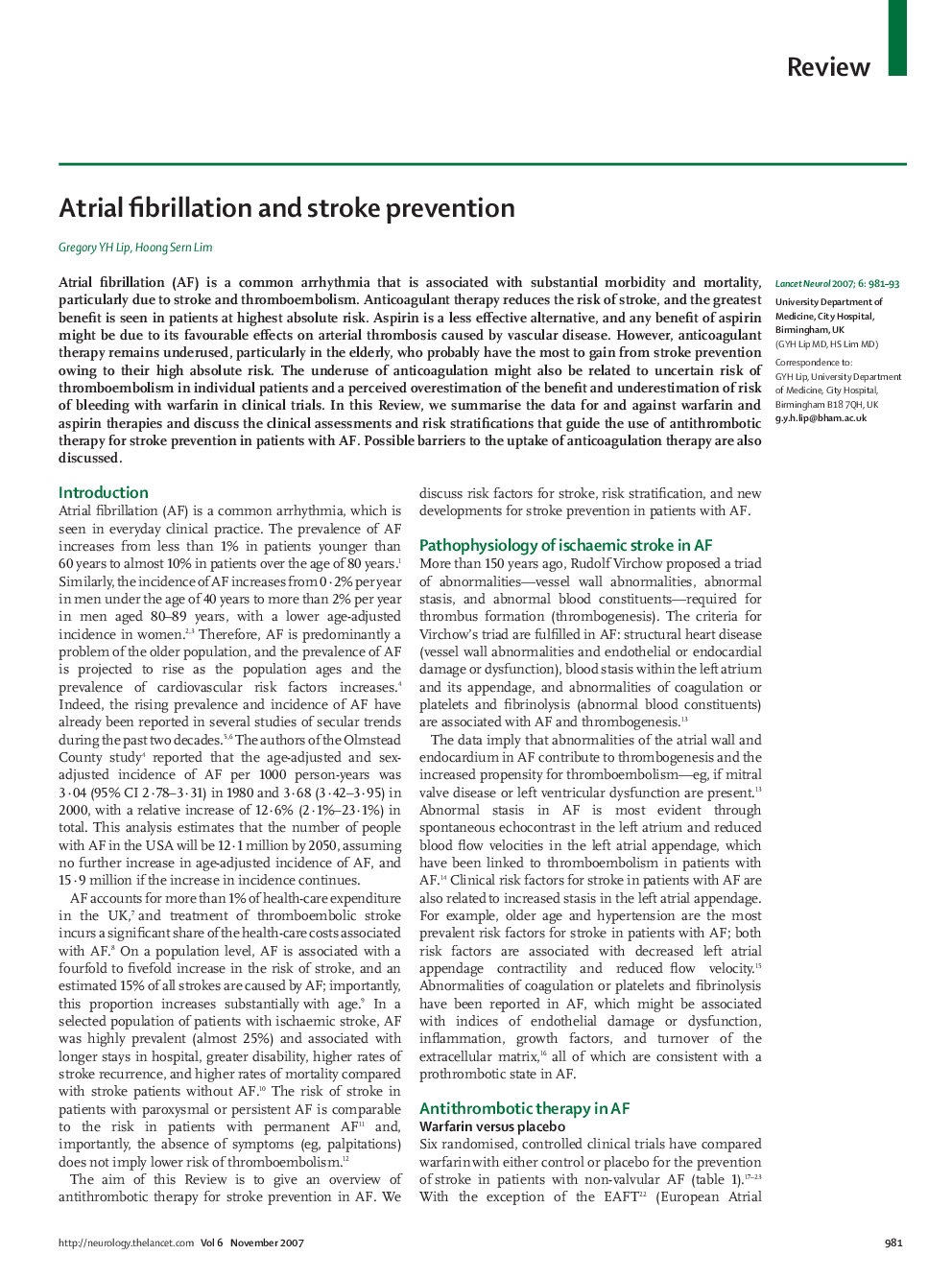| کد مقاله | کد نشریه | سال انتشار | مقاله انگلیسی | نسخه تمام متن |
|---|---|---|---|---|
| 3067681 | 1188165 | 2007 | 13 صفحه PDF | دانلود رایگان |

SummaryAtrial fibrillation (AF) is a common arrhythmia that is associated with substantial morbidity and mortality, particularly due to stroke and thromboembolism. Anticoagulant therapy reduces the risk of stroke, and the greatest benefit is seen in patients at highest absolute risk. Aspirin is a less effective alternative, and any benefit of aspirin might be due to its favourable effects on arterial thrombosis caused by vascular disease. However, anticoagulant therapy remains underused, particularly in the elderly, who probably have the most to gain from stroke prevention owing to their high absolute risk. The underuse of anticoagulation might also be related to uncertain risk of thromboembolism in individual patients and a perceived overestimation of the benefit and underestimation of risk of bleeding with warfarin in clinical trials. In this Review, we summarise the data for and against warfarin and aspirin therapies and discuss the clinical assessments and risk stratifications that guide the use of antithrombotic therapy for stroke prevention in patients with AF. Possible barriers to the uptake of anticoagulation therapy are also discussed.
Journal: - Volume 6, Issue 11, November 2007, Pages 981–993